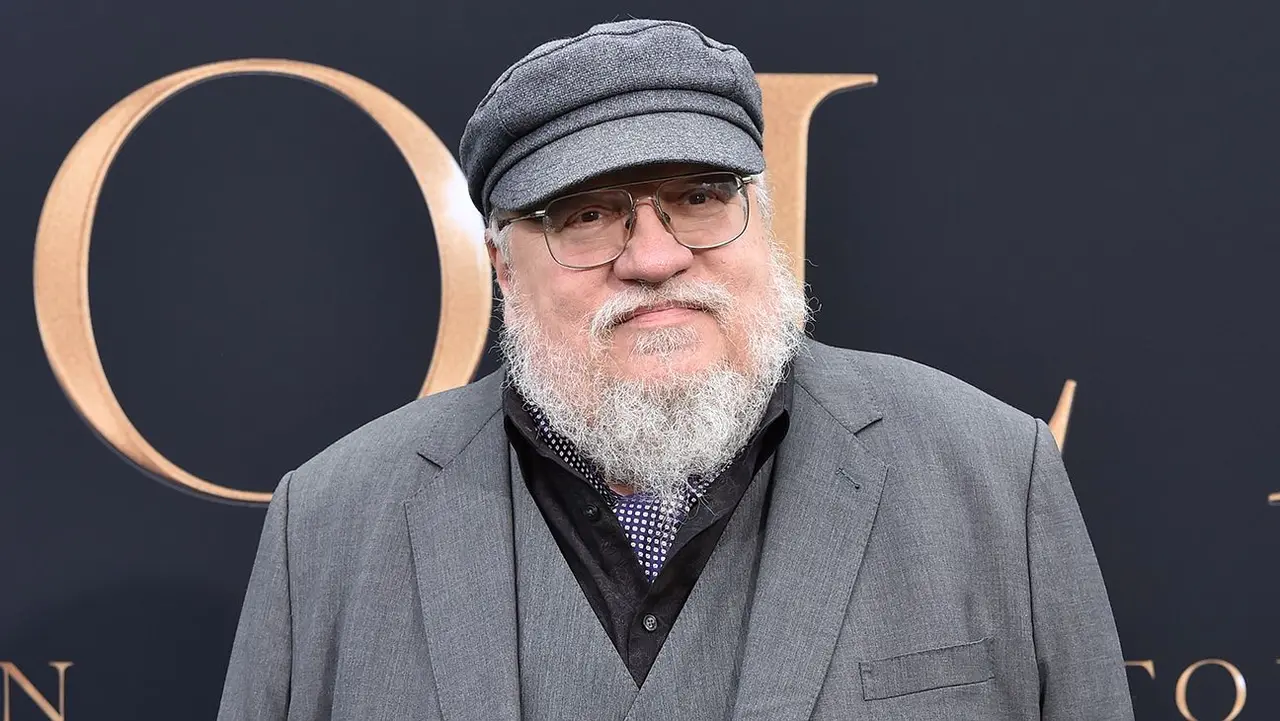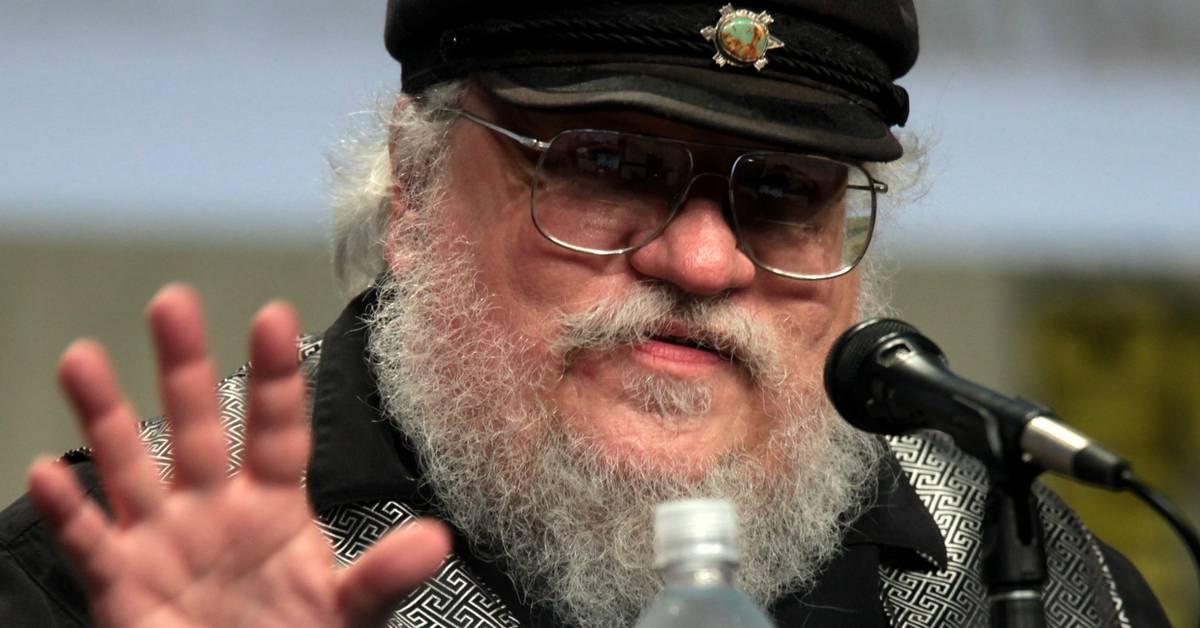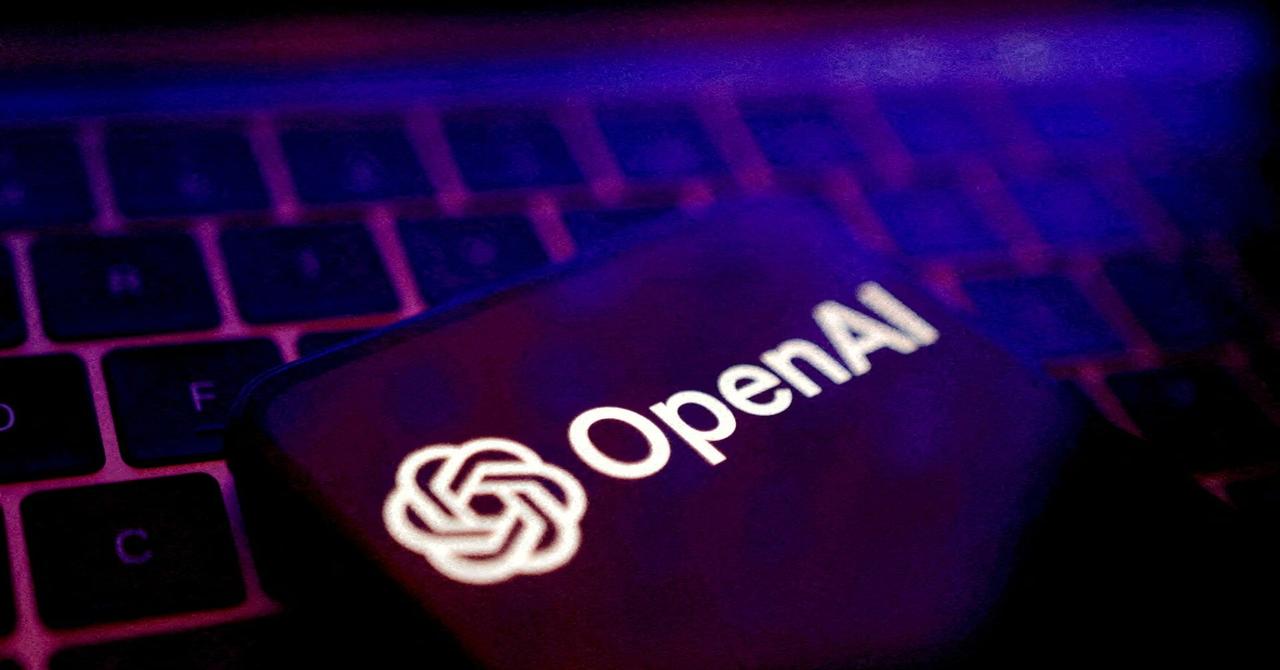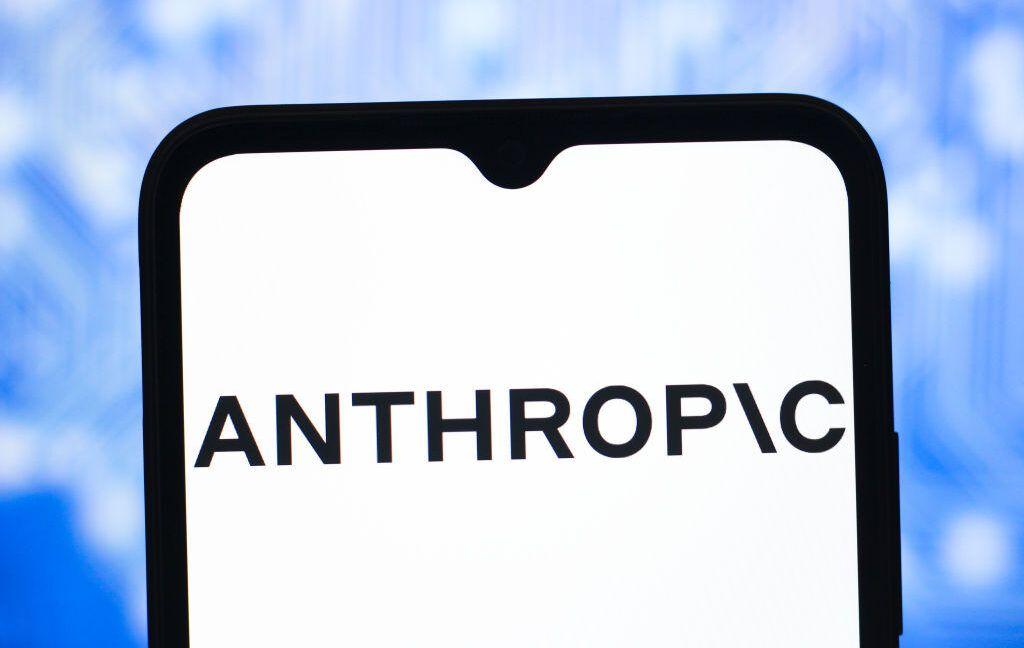George R.R. Martin's Legal Victory Against OpenAI Advances Copyright Battle in AI Era
4 Sources
4 Sources
[1]
'Game of Thrones' Author George R.R. Martin's OpenAI Lawsuit Takes a Step Forward
Score one for human beings in the ongoing battle between authors and generative AI models. A federal judge recently used Game of Thrones as an example while allowing class-action lawsuits against OpenAI to move ahead. According to Business Insider, a court ruling on Monday by U.S. District Judge Sidney Stein pointed to ChatGPT-generated text for an installment in A Song of Ice and Fire as grounds for violating George R.R. Martin's copyright over his book series. "A reasonable jury could find that the allegedly infringing outputs are substantially similar to plaintiffs' works," the Manhattan federal court ruling explained, as shared by the publication. Along with Martin, other notable authors, including Michael Chabon, Ta-Nehisi Coates, Jia Tolentino, and Sarah Silverman, are part of cases against OpenAI and Microsoft asserting that their copyrights are being violated by allowing their works to be utilized without permission to train the large language modelsâ€"not to mention allowing AI to create content that could be passed off as authors' legally protected works. As part of the lawsuit, a ChatGPT prompt created by Martin's lawyers resulted in the AI's offer to craft "an alternative sequel to A Clash of Kings [called] A Dance with Shadows," tweaking Martin's title, A Storm of Swords. As Business Insider notes, the chatbot went on to suggest plots revolving around "the discovery of a novel kind of 'ancient dragon-related magic' and new claims to the Iron Throne from 'a distant relative of the Targaryens' named Lady Elara, as well as 'a rogue sect of Children of the Forest.'" The results were reminiscent enough of Martin's work to allow the suits to move forward on copyright infringement grounds, though whether or not Microsoft and OpenAI are protected by "fair use" is still to be decided. Sure, AI can write faster than Martin but it is not Martin and will never replace Martin. We'd rather wait a few (more) years for his next book, thank you very much.
[2]
George R. R. Martin's next epic battle isn't on the page -- it's in court
George R.R. Martin is the author of the Song of Ice and Fire books, adapted by HBO as Game of Thrones. He's also part of a class action lawsuit filed by the Authors Guild against OpenAI for copyright infringement. Large language models, such as OpenAI's ChatGPT, work by training on vast amounts of written material, including Martin's books. Should that be legal when those books are copyrighted? Why or why not? Those are the kinds of questions that Martin and other authors are trying to get the legal system to answer, and the judge in this case just handed them a win. Even an AI-generated summary of Game of Thrones could qualify as copyright infringement A game of prompts The new opinion from Judge Sidney H. Stein, which can be read here if you're willing to wade through a substantial amount of legalese, is noteworthy because it suggests a new approach authors can take to challenge companies like OpenAI. Authors have been filing lawsuits about this stuff for a while now, and the discussion has mostly revolved around whether these AI companies are committing copyright infringement by training their LLMs on copyrighted material in the first place. However, Judge Stein has now suggested that the actual answers ChatGPT provides could be infringing in and of themselves. Martin isn't the only author involved in this case -- others include Michael Chabon, Ta-Nehisi Coates, and Sarah Silverman -- but he's the most famous, and all the examples in this ruling are drawn from his work. Stein examines a ChatGPT summary of the first book in Martin's series, A Game of Thrones, which breaks down the events of that book in bullet-point form, from Jaime Lannister pushing Bran Stark out a window in Winterfell to Ned Stark's execution in King's Landing. Stein concludes that a "discerning observer could easily conclude that this detailed summary is substantially similar to Martin's original work." That might sound a little weird, because how can a summary of a book really be that similar to the book itself? But legal standards aren't always the same thing as common sense standards. And Stein isn't saying that the ChatGPT summary actually is substantially similar to the book, just that a jury could find it so, which is enough for the case to move forward and for OpenAI to start sweating a little. Afterward, many people make ChatGPT their book club partner or do other things that help them engage with the text. Does all that constitute infringement? George R.R. Martin could force a reckoning on AI authorship Maybe then he'll finish up The Winds of Winter Stein also looks at a ChatGPT-generated outline for a never-written sequel book called A Dance With Shadows, which would have replaced the third book in the series, A Storm of Swords. In this fictional sequel, a brand new character named Lady Elara lands in Westeros with an army and tries to take the Iron Throne. The Red Wedding doesn't happen, and a new shadowy menace teams up with the White Walkers to invade the Seven Kingdoms. Now, this sounds pretty silly and stupid -- can you imagine if a brand new character were introduced in the middle of Game of Thrones and the whole story started revolving around her? -- but the quality isn't the point. A Dance With Shadows incorporates the setting, plot, and characters created by Martin, so "a reasonable jury" could determine that it's "substantially similar to Martin's original work," which might mean that it's infringing. Mind you, this doesn't mean ChatGPT is cooked. Depending on how far this case gets, OpenAI will probably argue that the answers generated by ChatGPT fall under fair use. If that argument prevails, it means the answers would be allowed even if they make unauthorized use of copyrighted material. Judge Stein doesn't touch that part ... yet. But authors like Martin probably want him to. Martin knows he can't "outlaw AI" But he does want rules and regulations around it Speaking to WinterIsComing.net in 2024, Martin sounded realistic about what he thinks this lawsuit can accomplish for himself and other authors. "[W]e don't think we're gonna outlaw AI. You can't outlaw new technology," he said. "[I]it's here to stay. The question is: what kind of regulations are you gonna have? What rules are there going to be? I mean, if you do use a book to train AI, does the author get to consent to the use of the book? Does the author have any say about it? Does the author get any income from it?" Generative AI is forcing a lot of creative professionals to reckon with what their jobs will look like in the future. What does it mean to be an author when an LLM can, in theory, generate a whole book from a bunch of prompts in a tiny fraction of the time it would take the author to write the same amount? Obviously, there's a lot of grey area in there -- LLMs depend on already-completed works and can't come up with anything new, for instance -- but that's the whole problem: there's too much grey area, and lawsuits like this are an attempt to make things more black and white. A storm of lawsuits I think that Martin and the other authors will want a final judgment in this case, one that actually draws some legal lines around what LLMs can and can't do when it comes to training on copyrighted material. But it may be in OpenAI's best interest to settle and pay everyone a lump sum. In another case, a group of authors sued Anthropic for copyright infringement, and the tech company ultimately paid a settlement of $1.5 billion, despite the judge having ruled in its favor. These AI companies don't seem to want to risk taking these cases all the way in case the results are bad for them. We'll have to watch and see what happens this time. In the meantime, the Game of Thrones universe is continuing to expand, at least onscreen. A new prequel show called A Knight of the Seven Kingdoms is due out in January and just might be exactly what the franchise needs. Game Of Thrones 10 stars 9 stars 8 stars 7 stars 6 stars 5 stars 4 stars 3 stars 2 stars 1 star Like TV-MA Drama Action Adventure Fantasy Release Date 2011 - 2019-00-00 Showrunner David Benioff, D.B. Weiss Directors David Nutter, Alan Taylor, D.B. Weiss, David Benioff 10 Images Close Cast See All Kit Harington Jon Snow Isaac Hempstead Wright Brandon Bran Stark Iain Glen Sir Jorah Mormont Peter Dinklage Tyrion The Halfman Lannister Streaming Service(s) MAX Powered by Expand Collapse
[3]
Game of Thrones author George R.R. Martin has taken OpenAI to court, and he's winning
The scales are tipping in favor of George R.R. Martin and his fellow authors in their case against OpenAI George R.R. Martin and a cohort of other authors have taken OpenAI, the company behind ChatGPT, to court - and, so far, they're winning. Things have taken a positive turn for Martin and the other plaintiffs (i.e. the people suing OpenAI) because two new theories of infringement have been advanced against the tech giant. That means the plaintiffs now have three different ways of winning the case. The damages awarded for copyright infringement could reach up to $150,000. The first argument is that using copyrighted books to train AI models counts as infringement, while a newer one relates to books being pirated from shadow libraries - some of which are used for training. The third argument is that answers generated by ChatGPT are substantially similar to the books they're trained on. "The prior class complaints asserted a cause of action for copyright infringement and alleged that OpenAI impermissibly downloaded and reproduced plaintiffs' books," the judge wrote (via The Hollywood Reporter) of the third claim. "The fact that many of the allegations in the prior class complaints suggested that the ultimate purpose of the reproduction was to train OpenAI's LLMs is not dispositive." The publication reports that, per the court, a reader could "easily conclude" that detailed summaries are "substantially similar" to Martin's A Song of Ice and Fire books because they "convey the overall tone and feel of the original work by parroting the plot, characters, and themes of the original." The next stage in the case will involve a summary judgment, where the court decides which claims will go to trial. Meanwhile, we're next set to return to the world of Westeros in A Knight of the Seven Kingdoms, which is based on Martin's Dunk and Egg novellas and is set 100 years before the events of Game of Thrones. The show will follow the adventures of the hedge knight Ser Duncan the Tall and his eager young squire, Egg. A Knight of the Seven Kingdoms premieres on HBO on January 18, 2026. While we wait, fill out your watchlist with our picks of the other best new TV shows coming our way.
[4]
George R.R. Martin Is Carving Up OpenAI In Court, So Far
It's been around three years since the first AI copyright lawsuit was filed. The state of play is still unclear, but winners and losers in certain cases are emerging. So far, one of the losers appears to be OpenAI in a lawsuit from book authors, who have steadily been building a formidable case that may force the tech giant's hand in forking over a big settlement ahead of trial. Earlier this week, a federal court advanced two new theories of infringement against the Sam Altman-led firm. As it stands, the authors, who include George R.R. Martin, have several outs to winning the case. In total, the plaintiffs are advancing three different arguments: the first is that the training of AI models on copyrighted books constitutes infringement, a common theory that most creators brought when the first wave of lawsuits were filed; the other relates to a newer argument over the practice of pirating books from shadow libraries that weren't used for training; and the last is that answers generated by ChatGPT are substantially similar to the books they're trained on. The theory over the illegal downloading of books has changed over the course of the litigation. At first, lawyers for the authors directly connected the piracy to OpenAI's training of its models under a single umbrella. But after the various class actions against OpenAI and Microsoft were consolidated, they separated the theories and alleged that the distinct act of illegally downloading the works, regardless of whether they were used for training, constitutes copyright infringement. OpenAI jumped on the move, arguing that its opposition improperly added an entirely new claim to the case without notice. Important to note: the one win for authors in another AI copyright case, this one initiated by Andrea Bartz against Anthropic, related to the company illegally downloading millions of books. The decision heavily leaned in favor of Anthropic, but the court greenlit that theory for trial. Anthropic later agreed to pay $1.5 billion to settle the lawsuit, despite the ruling largely siding with the AI company on fair use, which allows creators to build upon copyrighted works without a license. The lawyer heading that case, Justin Nelson, is also the lead lawyer for Martin. On Tuesday, U.S. District Judge Sidney Stein permitted the separation of the shadow library and training theories. "The prior class complaints asserted a cause of action for copyright infringement and alleged that OpenAI impermissibly downloaded and reproduced plaintiffs' books," the judge wrote. "The fact that many of the allegations in the prior class complaints suggested that the ultimate purpose of the reproduction was to train OpenAI's LLMs is not dispositive." Statutory damages for copyright infringement can reach up to $150,000, but there's no double-dipping. This means that the authors only need to prevail on one of their theories. With the court letting the shadow library argument to proceed, plaintiffs have another path toward maximizing damages. And in one of the more surprising findings, Stein also concluded that ChatGPT's answers can possibly be found to infringe upon the books they're trained on. It pointed to the chatbot's summaries of Martin's A Song of Ice and Fire. "Members of the Night's Watch, a sworn brotherhood tasked with defending the realm from threats beyond the Wall (a giant ice structure in the North), are attacked by mysterious and deadly creatures known as the White Walkers, thought to be mere legends," reads a summary of the book's setting. Here, the court said that a reader could "easily conclude that this detailed summary is substantially similar" to the book because it "conveys the overall tone and feel of the original work by parroting the plot, characters and themes of the original." Outlines for potential sequels to Martin's works played a part in the decision. When prompted with an alternative sequel to "A Clash of Kings that diverges from "A Storm of Swords," ChatGPT answered, in part, "Instead of being betrayed, Robb Stark creates a surprise alliance with Renly Baratheon's remaining supporters, drastically changing the balance of power in the war." The court, which stressed that it's not opining on fair use, said that a jury could undoubtedly find that the output infringes on Martin's works. With the ruling, the scales of the case have tipped in favor of the authors. Summary judgment, where the court decides which claims go to trial, will provide a clearer picture.
Share
Share
Copy Link
Game of Thrones author George R.R. Martin and fellow writers score a significant legal win as federal judge allows multiple copyright infringement theories to proceed against OpenAI, potentially setting precedent for AI training on copyrighted materials.
Federal Court Advances Authors' Case Against OpenAI
A significant legal victory for authors has emerged in the ongoing battle between creative professionals and artificial intelligence companies. U.S. District Judge Sidney Stein recently ruled in favor of allowing multiple copyright infringement theories to proceed against OpenAI in a class-action lawsuit led by Game of Thrones author George R.R. Martin and other prominent writers
1
.
Source: THR
The Manhattan federal court ruling represents a pivotal moment in AI copyright litigation, as Judge Stein determined that "a reasonable jury could find that the allegedly infringing outputs are substantially similar to plaintiffs' works"
1
. This decision allows the lawsuit to advance on multiple fronts, significantly strengthening the authors' position against the tech giant.Three Paths to Victory for Authors
The plaintiffs now have three distinct legal theories to pursue against OpenAI, each offering a potential path to victory. The first argument centers on whether using copyrighted books to train AI models constitutes infringement - a common theory in the first wave of AI copyright lawsuits
4
.The second theory involves the practice of pirating books from shadow libraries, which may have been used in training processes. This argument has evolved throughout the litigation, with lawyers initially connecting piracy directly to model training, but later separating these theories into distinct claims
4
.The third and perhaps most surprising argument suggests that ChatGPT's actual outputs can infringe upon the copyrighted works they're trained on. Judge Stein examined ChatGPT-generated summaries of Martin's A Song of Ice and Fire series, concluding that a "discerning observer could easily conclude that this detailed summary is substantially similar to Martin's original work"
2
.AI-Generated Content Under Legal Scrutiny
The court's examination of specific ChatGPT outputs has provided compelling evidence for the authors' case. When Martin's lawyers prompted the AI system, it offered to create "an alternative sequel to A Clash of Kings [called] A Dance with Shadows," which tweaked Martin's original title "A Storm of Swords"
1
.The AI-generated sequel proposal included plots involving "the discovery of a novel kind of 'ancient dragon-related magic' and new claims to the Iron Throne from 'a distant relative of the Targaryens' named Lady Elara, as well as 'a rogue sect of Children of the Forest'"
1
. The court found these outputs sufficiently similar to Martin's work to warrant legal consideration.Related Stories
High Stakes and Potential Damages
The financial implications of this case are substantial, with statutory damages for copyright infringement potentially reaching up to $150,000 per work
3
. Importantly, the authors only need to prevail on one of their three theories to secure victory, as there's no "double-dipping" in copyright damages4
.The case has drawn parallels to a recent settlement in another AI copyright lawsuit, where Anthropic agreed to pay $1.5 billion to settle a case brought by author Andrea Bartz, despite a ruling that largely sided with the AI company on fair use grounds
4
.Authors Seek Regulation, Not Elimination
Martin has been realistic about the lawsuit's goals, acknowledging that the aim isn't to "outlaw AI" entirely. Speaking to WinterIsComing.net in 2024, he explained: "You can't outlaw new technology. It's here to stay. The question is: what kind of regulations are you gonna have? What rules are there going to be?"
2

Source: MakeUseOf
The author emphasized key concerns about consent and compensation: "If you do use a book to train AI, does the author get to consent to the use of the book? Does the author have any say about it? Does the author get any income from it?"
2
The next phase will involve summary judgment proceedings, where the court will determine which claims proceed to trial, potentially setting important precedents for the future of AI development and copyright protection.
References
Summarized by
Navi
Related Stories
Game of Thrones Publisher Denies AI Art Claims Amid Fan Backlash Over Illustrated Edition
11 Nov 2025•Entertainment and Society

Legal Battles Over AI Training: Courts Rule on Fair Use, Authors Fight Back
15 Jul 2025•Policy and Regulation

Copyright Lawsuits Against OpenAI and Microsoft Consolidated in New York Federal Court
04 Apr 2025•Policy and Regulation

Recent Highlights
1
Google Gemini 3.1 Pro doubles reasoning score, beats rivals in key AI benchmarks
Technology

2
Meta strikes up to $100 billion AI chips deal with AMD, could acquire 10% stake in chipmaker
Technology

3
Pentagon threatens Anthropic with supply chain risk label over AI safeguards for military use
Policy and Regulation





